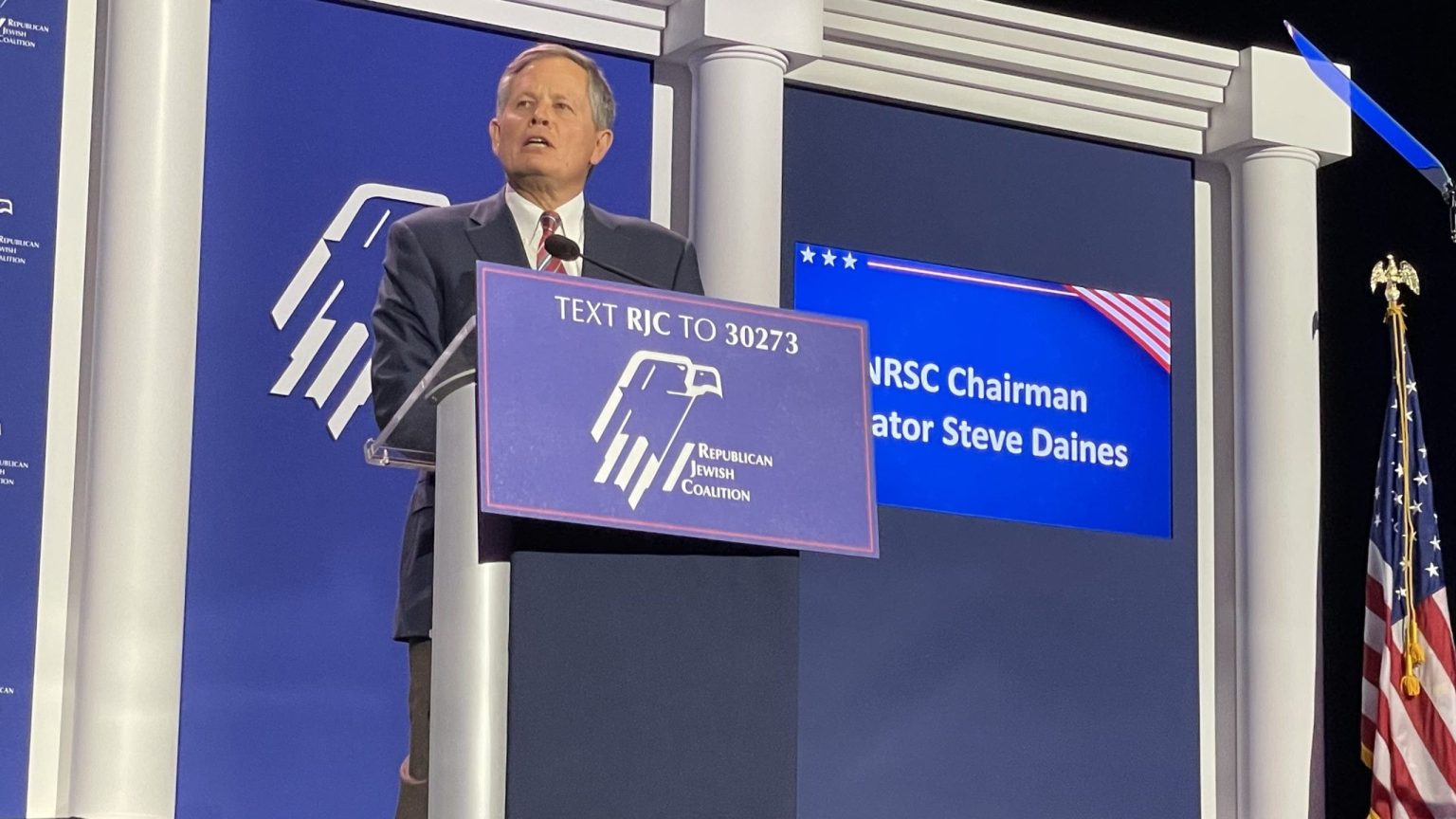Sen. Steve Daines of Montana, the chair of the Senate Republicans’ campaign committee, has confidently stated that his party will recapture control of the Senate in the upcoming November elections. Daines emphasized the importance of reaching the majority number of 51, as Democrats currently hold a narrow 51-49 advantage. The favorable election map this year, with Democrats defending more seats than Republicans, gives the GOP an opportunity to flip crucial seats in states like West Virginia, Montana, Ohio, and several battleground states. Daines highlighted the need for fundraising support to help GOP candidates close the financial gap with Democrats and secure victories in key races.
With Democrats trying to protect their fragile Senate majority, the entry of former GOP Governor Larry Hogan into the Senate race in Maryland in February added unexpected complexity to the election landscape. Hogan’s popularity and fundraising capabilities have posed a challenge for Democrats in a state previously considered safe territory. Daines emphasized the urgency of addressing the GOP’s fundraising deficit to ensure that winnable races are not lost due to lack of resources. Democrats have outspent Republicans in the battle for Senate control, particularly in key battleground states where they have made larger post-Labor Day ad reservations. Despite the financial disadvantage, Republicans are intensifying their efforts to secure necessary funding and support for their candidates.
Democrats currently have a spending advantage over Republicans in pivotal Senate battlegrounds, with planned expenditures of nearly $348 million compared to Republicans’ $255 million. Democratic ad reservation spending is significantly higher in states like Wisconsin, Nevada, Michigan, and Arizona, presenting challenges for GOP candidates in those areas. However, Republicans are strategically prioritizing their spending in states like Montana, Ohio, and Pennsylvania where they have reserved substantial resources for campaign ads. The surge in Democratic fundraising and enthusiasm since Vice President Kamala Harris replaced President Biden at the top of the 2024 ticket has further intensified the financial divide between the two parties.
Despite concerns about the Democratic fundraising advantage, Daines pointed out potential advantages for Republicans in the upcoming elections. He noted that Harris’ increased fundraising efforts could be countered with a focus on policy contrasts between the two parties. With Harris stepping in for the 81-year-old Biden in the White House race, Daines believes that this shift could help Republicans shift the focus to policy issues rather than age-related concerns. By contrasting the outcomes of President Trump’s administration with those of Harris’, Republicans hope to capitalize on the differing policy approaches and attract support in key Senate races. The upcoming elections are expected to be highly competitive, and the GOP is working diligently to address fundraising disparities and secure victories in critical races.
Overall, the Republicans are strategically positioning themselves to take advantage of the favorable election map and potential opportunities to flip Senate seats in key states. Daines’ confidence in regaining control of the Senate underscores the party’s determination to secure majority status in the upcoming elections. By focusing on fundraising efforts, policy contrasts, and strategic spending, Republicans aim to overcome challenges posed by Democratic fundraising advantages and ultimately emerge victorious in the battle for Senate control. With the election day fast approaching, both parties are gearing up for a highly competitive and closely watched political contest that will shape the future composition of the Senate.


